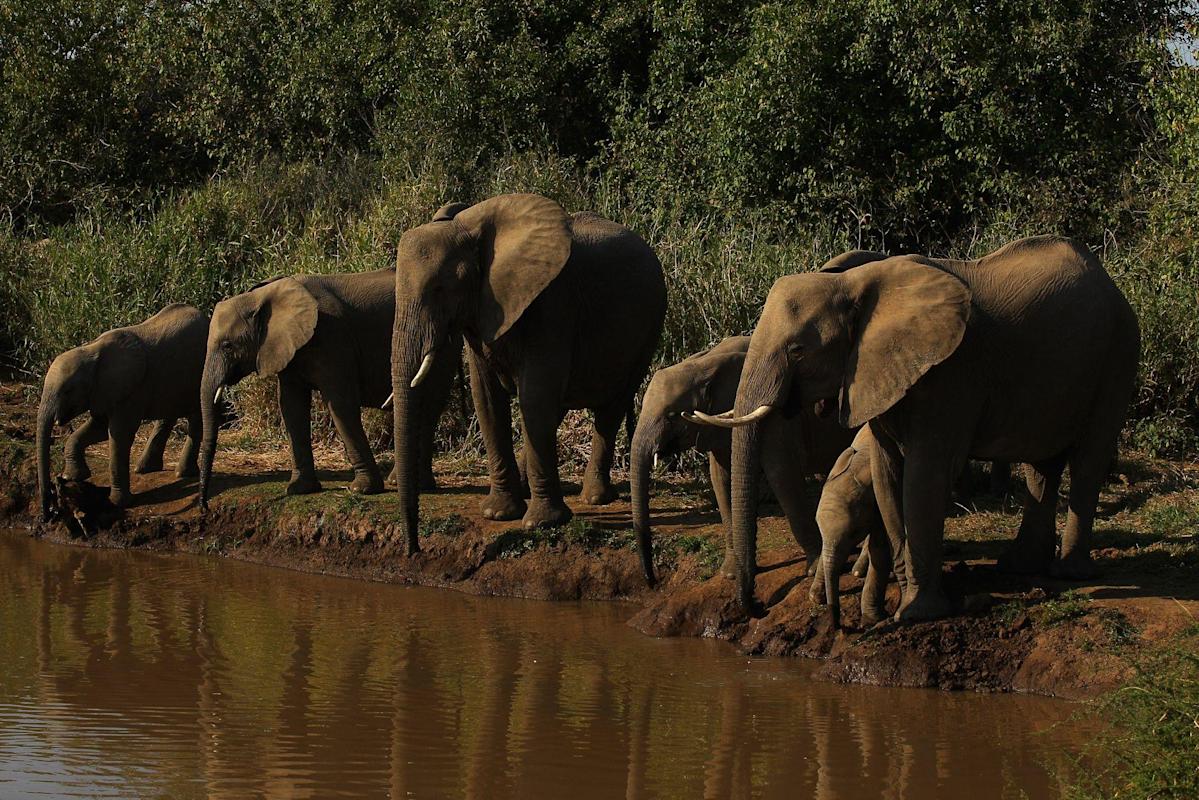
(Bloomberg) — A group of Southern African countries where two thirds of the world’s African Elephants live rowed back from a threat to leave an international governmental body that regulates trade in endangered species and their products.
Most Read from Bloomberg
Mangaliso Ndlovu, Zimbabwe’s environment minister, said a document tweeted by a government spokesman in which the countries threatened to leave the Convention on International Trade in Endangered Species of Wild Fauna and Flora, or CITES, was a draft.
“A pullout is not yet up for discussion,” Ndlovu, whose surname means elephant in the Ndebele language, said Thursday after the close of an elephant summit in Hwange, Zimbabwe’s biggest national park. “We don’t want to get to that level just yet of a pullout.”
Still, resolutions adopted after the meeting showed the dissatisfaction of Southern African states with CITES, which blocks trade in live elephants from many countries where they live and has completely halted trade in ivory.
While the World Wildlife Fund estimates that there are only 415,000 African elephants, compared with 10 million in 1930, their population has been growing rapidly in southern Africa, home to 293,000 of the animals. African elephants consist of two subspecies, savanna elephants, which roam plains and the lightly wooded savanna of southern and east Africa, and smaller forest elephants, which live in the tropical jungles of west and central Africa.
In countries such as Botswana and Zimbabwe, which have the world’s two biggest populations of the animals, the governments say the increasing number of elephants are raiding crops and killing farmers more frequently and are reducing biodiversity by tearing down trees.
At a CITES meeting in Panama later this year the states should “make a clarion call for CITES not to interfere in domestic trade, the sovereignty of states and their rights to sustainable use of wildlife,” one of the official resolutions read. In addition to Zimbabwe and Botswana, they were also backed by Tanzania, Zambia and Namibia.
The states also called for CITES to make decisions on trade curbs based on the elephant populations in specific nations and to find a way to allow the sale of ivory kept in stockpiles. Zimbabwe has estimated the value of its ivory stockpile at $500 million.
Even so, the summit failed to come up with a continent-wide consensus that could be taken to Panama. Kenya, a vehement opponent of resuming trade in ivory, stayed away from the conference as did Rwanda and Senegal.
“It’s a disappointment for me the attendance at the summit,” Ndlovu said. “It’s comfort though that the countries that came have 65% of the world’s elephant population.”
Most Read from Bloomberg Businessweek
©2022 Bloomberg L.P.




